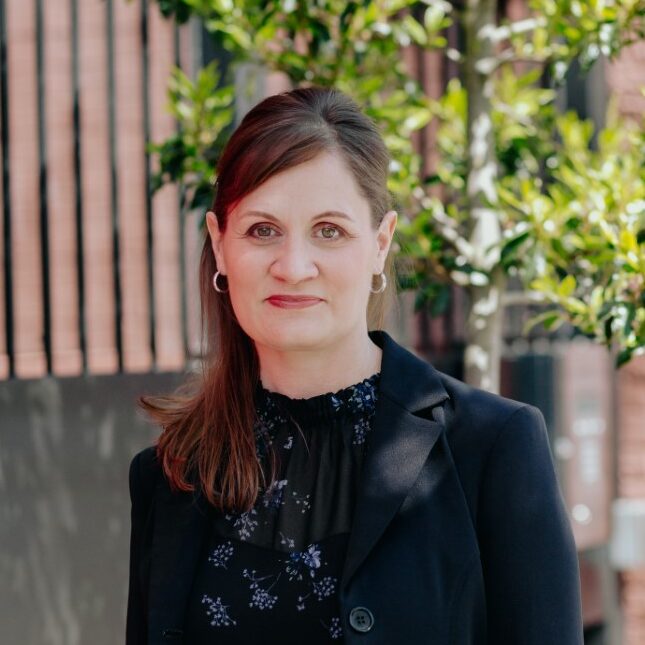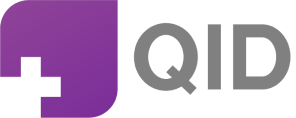Questions with QID: 5 Minutes with Lindsay Dixon

Meet Lindsay Dixon (BSP, RPh). She is currently a pharmacist, and the owner of Friendly Pharmacy 5 – her well-known YouTube channel with over 10,000 subscribers! Her channel initially served to correct the misinformation surrounding COVID-19 but with time, Lindsay’s success and growth on YouTube have led her to expand her channel and cover various other topics with her audience.
Continue reading to find out about Lindsay’s thoughts on the significance of social channels in healthcare today!
1. Tell us a bit about yourself! What made you want to get into the pharmacy profession?
I am an ultra-curious, but introverted Mom of 2 busy kids that teaches me daily that raising good humans is the most important job I’ll ever have. I enjoy hiking, biking, and basically doing anything outdoors. I’m also an IPG – though I grew up in Canada, my husband is Brazilian and I completed my pharmacy degree in Brazil – shoutout to my fellow IPGs!
Ever since I can remember, I have always gravitated toward the sciences. I grew up in a very small town on Vancouver Island and there was a local Pharmacy owner who would write a column in the newspaper regularly on different health topics. I enjoyed reading his columns, the information was fascinating! My journey into pharmacy school was not linear, however. I actually started out completing 1 semester in nursing – I just knew I wanted to do something in medicine and I really wanted to help people. During the first semester in nursing, I fainted at the sight of blood and realized this wasn’t for me. I was eventually able to start pharmacy school and I never looked back.
2. You are known for using your platform on YouTube for health education and patient advocacy. How would you describe the significance of social channels in healthcare today? What are some of the benefits and risks?
For many years healthcare professionals (Pharmacists included) have been telling their patients to stop Googling their symptoms – though I have also said this to patients myself, I do doubt the efficacy of this type of advice. People are now YouTubing their health issues, and they are finding answers – both good answers and bad. They are not going to stop doing this – we need to find a way to get the right information into the hands of the public – one way to do this is by supporting credible scientists and healthcare professionals who are doing this type of work already and even recommending these sources to our patients. YouTube Health is looking to do just that and I look forward to seeing how they are able to support healthcare professionals on social media and even use their algorithm to prioritize credible scientific information for their viewers in the future.
The speed at which social media has evolved and the fact that it is so user-friendly can be both helpful and harmful. Literally, anyone can have a platform. I am encouraged that I do see healthcare experts starting to embrace social media to help combat misinformation and also help the public with their health needs – we need to be supporting these individuals and amplifying the voices of those who are sharing credible information.
The most dangerous experts that I see online are the ones that have some sort of designation or degree but the information they share ends up being a mix of scientific truth and untruth or complete misinterpretation of a scientific paper, for example. These individuals often state everything as fact rather than leaving room for any uncertainty. Over the course of the pandemic, I have had numerous pieces of content sent to me by concerned members of the public where I see these “online experts” doing exactly this – I don’t blame the public for falling for this. This mixing of truth and untruth is especially dangerous because not only is it difficult to tease out what information is in fact credible, but it also eventually leads to mistrust in science and in those who work in the healthcare profession.
We really need to rethink how we can better equip society for the world we are living in. Our education systems should foster critical thinking skills and the ability to recognize misinformation as early as elementary school and this should be a continual focus right on into university.
3. How do you believe technology and online networking can enhance clinical decision-making?
It’s very exciting to see how AI is developing right now, especially in the healthcare sector. Though we are seeing many advances, we still have so far to go. I see technology as a partner in healthcare – a way to allow the patient to be more of an active member in their own healthcare decisions and a way for clinicians to make better decisions, based on data sets that the patient can curate, say from home, in between medical consults.
As far as online networking goes – this is something that continues to astound me. The pandemic brought so many more scientists and healthcare professionals (myself included) to social media, Twitter is an incredible example of this. Through social media platforms like Twitter, your professional network now includes not only those in your community but now we literally have a world of experiences and clinical experts that can be reached in seconds. Of course, this isn’t a replacement for face-to-face connections, but it definitely enriches one’s network and has allowed me to meet some incredible individuals that I never would have interacted with otherwise. Because of this, you no longer need to look up an article on a certain topic that is outside of your expertise – social media allows you to go straight to the expert, say through a DM and ask the question. Having this type of resource at the tips of your fingers can be incredibly helpful and efficient when making clinical decisions.
4. How do you keep up with pharmaceutical trends and new knowledge? Does this impact the topics that you choose to cover on your channel?
As pharmacists, I think we’re fairly resourceful and generally able to digest what is new and/or trending in healthcare fairly quickly, which is good because the amount of information that is available to us daily is astounding. Keeping up with the science of the pandemic was definitely challenging as 1 day of pandemic information felt like 1 month during normal times.
I try to keep up to date on the latest pharmacy journals, I read Pharmacy Practice & Business, and the Pharmacist’s Letter, and follow some of the large science journals like Nature, and JAMA. I also follow literally hundreds of healthcare organizations on social media. Since the pandemic started, I try to skim through local and national news fairly regularly. It’s still not possible to keep up but I do my best!
The topics I cover on the channel are a combination of trying to keep our pharmacy group informed on the latest health trends, and also choosing what information would best serve the online audience.
5. Between managing your social media channels and working as a pharmacist, how do you find work-life balance?
As a parent of young kids, this is not without its challenges. I have a new role with an independent pharmacy now which allows me to work part-time and do the majority of my work from home which is incredibly helpful. Because our youngest is not quite school-aged, this means that I work a lot on the weekends, or in the evenings.
The YouTube channel can be a bit of a strain on my mental health at times, so I have had to learn to manage that – one of the ways I have done this is by making it a bit more difficult for me to access the analytics for example. For self-care, I try to prioritize any kind of physical exercise that I can fit in while being out in nature – this usually involves me jogging behind one of my kids as they scooter through the neighbourhood. Staying physically active has definitely helped to keep me sane the past few years!
